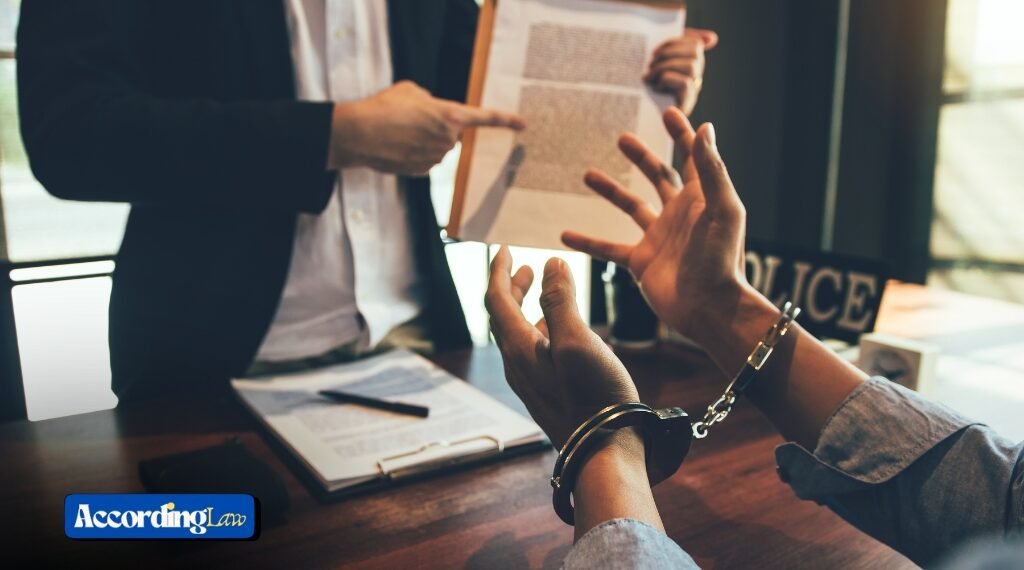Every year, the FBI records over 10 million arrests in the United States, and the Innocence Project reports that 4–6% of incarcerated individuals are factually innocent. One misstep in the legal process, whether an improper search, coerced confession, or overlooked alibi, can derail a life. This is where a criminal defence lawyer becomes your most critical ally. From the moment of arrest through sentencing (or exoneration), they operate as investigator, strategist, negotiator, and courtroom advocate. This 2,000-word guide breaks down exactly how a criminal defence lawyer works on your behalf; with step-by-step procedures, real-world examples, and constitutional protections you need to know.
Table of Contents
What Does a Criminal Defence Lawyer Do?
A criminal defence lawyer is not just a courtroom speaker, they are a full-spectrum legal operative. On any given day, they might file a motion to suppress evidence at 9 a.m., interview a witness at noon, negotiate with a prosecutor at 3 p.m., and prepare jury instructions at midnight. Their mandate: ensure the government proves guilt beyond a reasonable doubt while protecting your rights in criminal cases at every turn.
Key Responsibilities of a Criminal Defense Lawyer
Investigates Your Case
Within 24–48 hours of retainer, the lawyer launches a parallel investigation. They hire private investigators (average cost: $75–$150/hour) to:
Example: In a 2023 DUI case in California, a defense PI discovered a malfunctioning breathalyzer (serial # logged in maintenance records), leading to dismissal.
Analyzes Evidence
Every piece of prosecution evidence undergoes chain-of-custody scrutiny. Lawyers check:
Counseling You on Your Options
In a confidential attorney-client meeting, they lay out:
Representing You in Court
From arraignment (where bail is set) to voir dire (jury selection), they:
Negotiating Any Plea Bargains
90–95% of cases resolve via plea (Bureau of Justice Statistics). Lawyers negotiate:
Challenging the Prosecution’s Evidence
File motions to suppress:
Communicating Effectively with Law Enforcement and Other Officials
They:
Protecting Your Rights from Violation
Constant vigilance over 4th, 5th, 6th, and 14th Amendments. Example: If police enter without a warrant, evidence is fruit of the poisonous tree and excluded.
Why Is a Criminal Defense Lawyer Important?
Guides You Through the Legal System
The process spans 6–24 months:
1. Arrest → Booking (0–48 hours)
2. Arraignment (bail set)
3. Discovery (evidence exchange)
4. Pre-trial motions
5. Trial or plea
6. Sentencing
A lawyer translates legalese and prevents self-incrimination.
Presents Your Defense in Court
They shift the narrative: “My client was at work, here’s timestamped CCTV.”
Negotiating and Plea Deals
Without counsel, you risk 3x harsher sentences (NACDL study).
When Is the Best Time to Hire a Defense Attorney?
Immediately after arrest, before speaking to police.
Common Types of Criminal Charges and Cases
| Charge | Example | Penalty Range |
| DUI/DWI | BAC 0.08% | License suspension, $1,000 fine |
| Drug Possession | 28g marijuana | 1 year jail, $5,000 fine |
| Assault | Bar fight | 1–5 years |
| Theft | Shoplifting $900 | 6 months–3 years |
| White-Collar | Embezzlement $50K | 5–20 years, restitution |
| Federal | Drug trafficking | 10 years–life |
Consequences of a Criminal Charge Conviction
How a Criminal Defense Lawyer Can Protect Your Rights
This is where protecting your rights in criminal cases meets legal help for major criminal charges.
The Rights of a Defendant in a Criminal Case
The Effects of the Violation of a Defendant’s Rights
Methods Defense Attorneys Use to Protect Clients’ Rights
What Is the Role of a Lawyer in a Criminal Case?
Advocate + Strategist + Negotiator. Self-representation (“pro se”) succeeds in <1% of felony trials.
What Are the Benefits of Hiring a Criminal Lawyer?
Understanding the Legal Process
Why Does a Criminal Case Take So Long?
Why Can’t I Do What a Lawyer Would Do?
What Exactly Does a Criminal Lawyer Do?
1. Investigate → Build your timeline.
2. Analyse → Find holes in prosecution case.
3. Advise → Best path forward.
4. Represent → Speak for you in court.
5. Negotiate → Minimize damage.
6. Protect → Shield your constitutional rights.
Wrap Up
A criminal charge doesn’t define you, but how you respond does. A skilled defence lawyer is your firewall against injustice, turning chaos into strategy. From the first phone call to the final gavel, they fight so you don’t have to face the system alone. If you’re under investigation or arrested, call a lawyer before you say a word. Your future depends on it.


